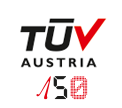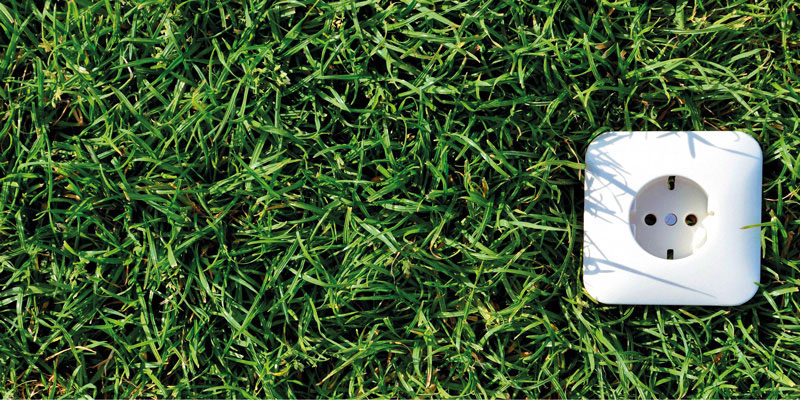Grocery chains invest in energy management
- 04/26/2016
- Industry & Energy Business Assurance
- Created by Christiane Reitshammer
On the occasion of the Climate Change Conference in Paris, the three major environmental organizations, Greenpeace, the WWF and Global 2000, have also called on companies to stick to the climate targets to which they have committed themselves. The largest Austrian supermarkets are exemplary in this, as they already utilize energy-saving measures such as LED lamps, heat recovery systems and ecological building standards.
Through the Federal Energy Efficiency Act (EEffG), large companies are obliged to set measures to increase their energy efficiency. Successful, systematic energy management also includes continuous identification of energy saving potentials, efficient use of energy, the search for alternative/renewable energy sources, and the building of awareness and training of the employees in the company. Certification according to EN ISO 50001 supports the company in these efforts. The largest Austrian grocery companies SPAR Österreichische Warenhandels GmbH, REWE International AG, Hofer KG, and the Pfeiffer Group have already commissioned TÜV AUSTRIA Business Area Life, Training & Certification to carry this out. “Going down the certification path certainly had something to do with the fact that energy saving was very impor tant in these organizations already, long before the EEffG came into force,” explains Werner Gargitter,Lead Auditor of TÜV AUSTRIA. “Energy efficiency is an important factor for sustainable development, which has already been an integral part for the corporate management for many years in all four organizations.”
From warehouse to cash register
In the course of the audit, alongside the planning and control processes in the group headquarters the TÜV AUSTRIA team also examined the individual warehouse locations (incl. truck fleets and cooling halls), branches, production operations, and numerous sales offices. Energy managers in the companies and in the respective corporate management teams formulate the medium and long-term energy saving targets. Energy teams are formed, internal energy checks carried out regularly, and employees are trained.
Top priorities are investments in energy-saving technologies such as economically refrigerated cabinets and shelves, heat recovery from the refrigeration system as replacement for conventional heating systems, or LED lighting in branches and warehouses. The energy monitoring and controlling systems that are established in the respective companies are a significant part of the energy management systems. Fundamental renovation of branches or the construction of modern supermarkets and warehouses (“Green buildings”) naturally make a significant contribution to the reduction of the overall energy consumption.
“The trading companies underline their social responsibility in relation to climate protection and energy efficiency with the TÜV AUSTRIA certified energy management systems,” says Gargitter. Unlike the external energy audits possible according to the EEffG (every four years, without obligation to implement energy saving measures), the four organizations submit to annually recurring monitoring audits and must be able to show the realized and planned energy saving measures from inspection to inspection.
“TÜV AUSTRIA Carbon Neutral”
Hofer advertising has been featuring the claim “We work CO2-neutrally.” According to its own reports, Hofer has been working exclusively with green power from Austria since 2013 and since then has implemented various modernizations and technologies. Thus, the CO2 carbon footprint was drastically reduced. The remaining approx. 30,000 tons of CO2 should now be compensated for by the support of various climate protection projects both in Austria and abroad. Inspection of greenhouse gas emissions is undertaken by the Environmental Protection Business Unit of TÜV AUSTRIA Industry & Energy.
The division has been working for Hofer KG since 2015 in the food trade, as implemented by Walter Koch, who is responsible for investments in climate protection Projects at Hofer. Until now, the orders included inspections of the CO2 emissions in the operation of the new branch concept (Bergland/Wieselburg branches) with the logo “TÜV AUSTRIA CO2 emissions-free in operation.” Furthermore, the CO2 emissions of Hofer KG Österreich are being inspected in detail from the greenhouse gas balance produced by the company (branches, distribution centers as well as transport from the distribution centers to the branches). Subsequently, investments in climate protection programs for the determined CO2 emissions (plan data for CO2 emissions in 2016) were inspected in detail or verified by a certificate (TÜV AUSTRIA CO2-neutral with compensation).
ISO 50001
In total, the ISO 50001 certifications of the four companies (SPAR, Hofer, Rewe, Pfeiffer) include in their scope more than 3,000 food branches in Austria and more than 100 in Hungary, about 650 perfume shops, around 100 sports goods shops in Austria and Germany, approx. 20 wholesale markets, almost 20 central warehouses, six meat processing plants, a vineyard as well as a chocolate factory.
Grocery chains Hofer, Pfeiffer, REWE, Spar invest in energy management, , Photo: Nastassia Nicolaij ©Reporters/Reporters/picturedesk.com

